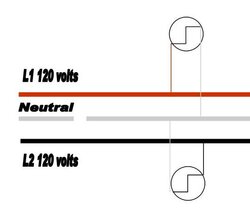Yesterday I noticed lights inside my house would flicker while the heat pump was running. By this I mean a quick, almost unnoticable flicker every minute or so and not just when it initially kicks in. It has not been doing this very long as I would have noticed, so probably started recently. At first I thought it was a problem with the power coming down the power lines as it was the kind of quick flicker you might get during a storm (and we were having heavy rain yesterday) but I quickly noticed it stopped whenever the heat pump stopped running. Sometimes my emergency heat kicks in but I watched and this has not been happening as I tried to figure out this flicker. It is just the regular heat pump heating and the fan running.
I have a 3 year old Honeywell digital thermostat that has worked flawlessly so far. I have watched the display to see if perhaps something like the emergency heat was kicking in incorrectly and everything looks OK. I notice nothing on the thermostat display that coincides with the flicker. I stood by both my indoor air handler and my outdoor unit and heard nothing cycling or out of the ordinary.
I hope it doesn't harm my TV or computer or other electronics before I figure this out. The TV doesn't flicker and my computer UPS doesn't give the alarm it sometimes does when the power blips. I don't have anything new plugged in that uses electricity that could be causing a singificant load when coupled with the heat pump running.
Any ideas?
I have a 3 year old Honeywell digital thermostat that has worked flawlessly so far. I have watched the display to see if perhaps something like the emergency heat was kicking in incorrectly and everything looks OK. I notice nothing on the thermostat display that coincides with the flicker. I stood by both my indoor air handler and my outdoor unit and heard nothing cycling or out of the ordinary.
I hope it doesn't harm my TV or computer or other electronics before I figure this out. The TV doesn't flicker and my computer UPS doesn't give the alarm it sometimes does when the power blips. I don't have anything new plugged in that uses electricity that could be causing a singificant load when coupled with the heat pump running.
Any ideas?


